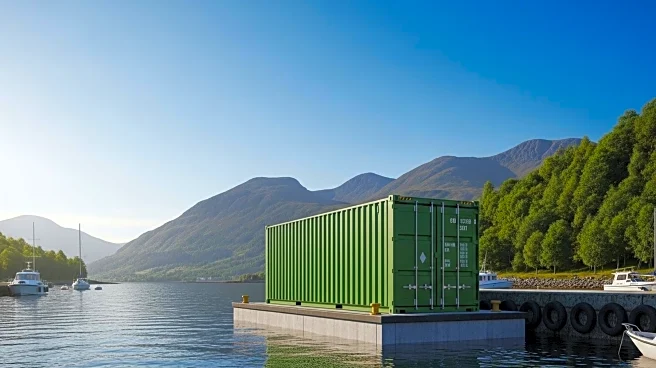What's Happening?
The Inverness and Cromarty Firth Green Freeport has achieved a significant milestone with the signing of a memorandum of understanding on September 26. This agreement involves the UK Government, Scottish Government, Highland Council, and the Freeport itself, establishing a formal framework for cooperation. The agreement unlocks £25 million in UK Government capital funding aimed at accelerating the Freeport's development. The initiative is projected to transform the Highland economy over the next 25 years, creating over 11,000 long-term jobs and attracting more than £6.5 billion in investment. The Freeport is set to equip the regional workforce with future-focused skills, contributing to a sustainable industrial legacy.
Why It's Important?
This development is crucial for the Highlands, as it positions the region as an international hub for offshore wind and renewable energy. The investment and job creation are expected to significantly boost the local economy, providing high-quality employment opportunities and fostering economic growth. The Freeport's focus on clean energy aligns with broader environmental goals, potentially reducing carbon emissions and promoting sustainable practices. The collaboration between governments and local partners underscores the importance of coordinated efforts in achieving economic and environmental objectives.
What's Next?
The Freeport's ambitions will be supported by Aurora Energy Services' new £1.2 million training facility in Inverness, which opened earlier this year. This center will train over 2,000 workers annually for the renewables sector, becoming a key component of the supply chain supporting the Freeport's goals. As the project progresses, stakeholders will likely focus on further developing infrastructure and attracting additional investments to ensure the long-term success of the initiative.
Beyond the Headlines
The establishment of the Freeport may have broader implications for regional development and energy policy. It could serve as a model for similar initiatives in other parts of the UK, demonstrating the potential benefits of investing in renewable energy and sustainable industrial practices. Additionally, the focus on future-focused skills training highlights the importance of preparing the workforce for emerging industries, which could influence educational and vocational training policies.









